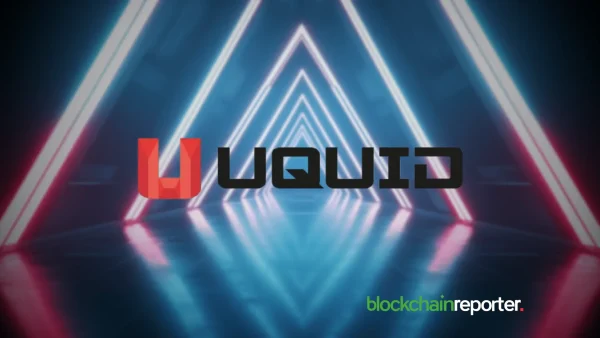
- 1. Introduction
- 2. So How Does Blockchain Technology Help Organizations When Sharing Data?
- 2.1. Blockchain Security for Data Sharing
- 2.2. Decentralized Data Sharing with Blockchain Technology
- 2.3. Transparency and Trust in Data Sharing with Blockchain
- 2.4. Blockchain-Based Consensus Mechanisms for Data Sharing
- 2.5. Smart Contracts and Blockchain for Secure Data Sharing
- 2.6. Cryptography and Data Sharing on the Blockchain
- 2.7. Public Key Infrastructure in Blockchain-Based Data Sharing
- 2.8. Permissioned Blockchain and Secure Data Sharing
- 2.9. Blockchain Interoperability and Data Sharing
- 2.10. Blockchain and Data Privacy in Data Sharing
- 2.11. Traceability and Blockchain-Based Data Sharing
- 2.12. Blockchain-Based Digital Identity for Secure Data Sharing
- 2.13. Data Management in Blockchain-Based Data Sharing
- 2.14. Cybersecurity and Blockchain-Based Data Sharing
- 3. Conclusion
Introduction
Blockchain technology is revolutionizing the way organizations share data. Its features, such as immutability, transparency, and security, provide a reliable and tamper-proof way to share data. However, to fully understand how blockchain technology helps organizations when sharing data, it’s important to explore its various aspects, including its security, consensus mechanisms, and data privacy. Let’s find out how does blockchain technology help organizations when sharing data.
So How Does Blockchain Technology Help Organizations When Sharing Data?
Blockchain Security for Data Sharing
Blockchain security for data sharing is a crucial aspect that cannot be overlooked. The immutability of blockchain technology provides an added layer of security, as it makes it impossible for data to be altered or deleted once it’s recorded on the blockchain. Additionally, cryptography is used to secure the data on the blockchain, making it nearly impossible for hackers to gain unauthorized access.
Distributed ledger technology and data sharing go hand in hand, as blockchain is a type of distributed ledger technology. This means that data is stored on a network of computers, rather than on a centralized server. This decentralized approach to data storage and sharing makes it more secure and transparent.
Decentralized Data Sharing with Blockchain Technology
Decentralized data sharing with blockchain technology is one of the key benefits of this technology. By eliminating the need for intermediaries, blockchain technology enables organizations to share data directly with each other, reducing the risk of data breaches and increasing the speed of transactions. Read more here.
Transparency and Trust in Data Sharing with Blockchain
Transparency and trust in data sharing with blockchain are other important aspects of this technology. Every transaction on a blockchain is recorded and can be accessed by anyone on the network, making it easy to track and verify data. This transparency also helps to build trust between users on the network, as everyone has access to the same information.
Blockchain-Based Consensus Mechanisms for Data Sharing
Blockchain-based consensus mechanisms for data sharing ensure that all transactions on the network are verified and agreed upon by all participants before they are added to the blockchain. This helps to prevent fraud and ensures that the data on the blockchain is accurate and trustworthy.
Smart Contracts and Blockchain for Secure Data Sharing
Smart contracts and blockchain for secure data sharing are also crucial features of this technology. Smart contracts are self-executing contracts that automatically execute when certain conditions are met. This eliminates the need for intermediaries and ensures that all parties involved in a transaction are held accountable.
Cryptography and Data Sharing on the Blockchain
Cryptography and data sharing on the blockchain provide an added layer of security, as cryptographic algorithms are used to encrypt and secure data on the blockchain, making it difficult for hackers to gain unauthorized access.
Public Key Infrastructure in Blockchain-Based Data Sharing
Public key infrastructure in blockchain-based data sharing provides secure and verifiable digital identities for users on the network, further increasing the level of data security. This ensures that only authorized users can access the data on the blockchain.
Permissioned Blockchain and Secure Data Sharing
Permissioned blockchain and secure data sharing are also crucial aspects of this technology. By creating a permissioned blockchain, organizations can ensure that only authorized users can access the data on the blockchain, further increasing its security and trustworthiness.
Blockchain Interoperability and Data Sharing
Blockchain interoperability and data sharing are important aspects to consider, as there are many different blockchain networks, each with its own set of protocols and standards. This can make it difficult for organizations to share data across different networks. Interoperability is the key to overcoming this challenge.
Blockchain and Data Privacy in Data Sharing
Blockchain and data privacy in data sharing is another crucial aspect to consider. While blockchain technology offers a high level of data security, it can also make data more transparent, which may not be desirable in all cases. Organizations must carefully consider the level of privacy they need and implement appropriate measures to protect sensitive data.
Traceability and Blockchain-Based Data Sharing
Traceability and blockchain-based data sharing ensure that every transaction on the blockchain is recorded and can be easily traced back to its origin. This is particularly useful for supply chain management, where it’s important to track the movement of goods from one place to another.
Blockchain-Based Digital Identity for Secure Data Sharing
Blockchain-based digital identity for secure data sharing provides a secure and verifiable way to identify users on the network, further increasing the level of data security and trustworthiness.
Data Management in Blockchain-Based Data Sharing
Data management in blockchain-based data sharing is a crucial aspect to consider, as it’s important to ensure that the data on the blockchain is accurate and up to date. Organizations must establish clear protocols for data management, including data entry, verification, and deletion.
Cybersecurity and Blockchain-Based Data Sharing
Cybersecurity and blockchain-based data sharing go hand in hand, as blockchain technology can help protect against cyber attacks. By eliminating the need for intermediaries, blockchain technology reduces the risk of data breaches, and the immutability and transparency of the blockchain make it easier to detect and prevent fraudulent activity.
Conclusion
In conclusion, blockchain technology provides a reliable, secure, and transparent way for organizations to share data. Its decentralized approach to data storage and sharing, coupled with its immutability, transparency, and security features, make it a game-changer for data sharing in various industries. However, organizations must carefully consider the various aspects of blockchain technology, including its security, consensus mechanisms, and data privacy, to fully harness its benefits. By doing so, they can improve data sharing, enhance security, and increase efficiency in their operations. Now you should have a better understanding on how does blockchain technology help organizations when sharing data.
READ MORE:
Which Statement is True About Blockchain?
How Can Features of Blockchain Support Sustainability Efforts
Blockchain and Cryptocurrency Mass Adoption: The Future of Finance
Frequently Asked Questions
What is blockchain technology?
Blockchain technology is a distributed ledger technology that enables data to be stored on a network of computers in a decentralized manner, rather than on a centralized server.
How does blockchain technology help organizations when sharing data?
Blockchain technology helps organizations when sharing data in various ways, including its security, consensus mechanisms, data privacy, transparency, and trustworthiness.
What are some benefits of decentralized data sharing with blockchain technology?
Decentralized data sharing with blockchain technology eliminates the need for intermediaries, reduces the risk of data breaches, and increases the speed of transactions.
How does blockchain technology help protect against cyber attacks?
Blockchain technology helps protect against cyber attacks by reducing the risk of data breaches, and its immutability and transparency make it easier to detect and prevent fraudulent activity.









